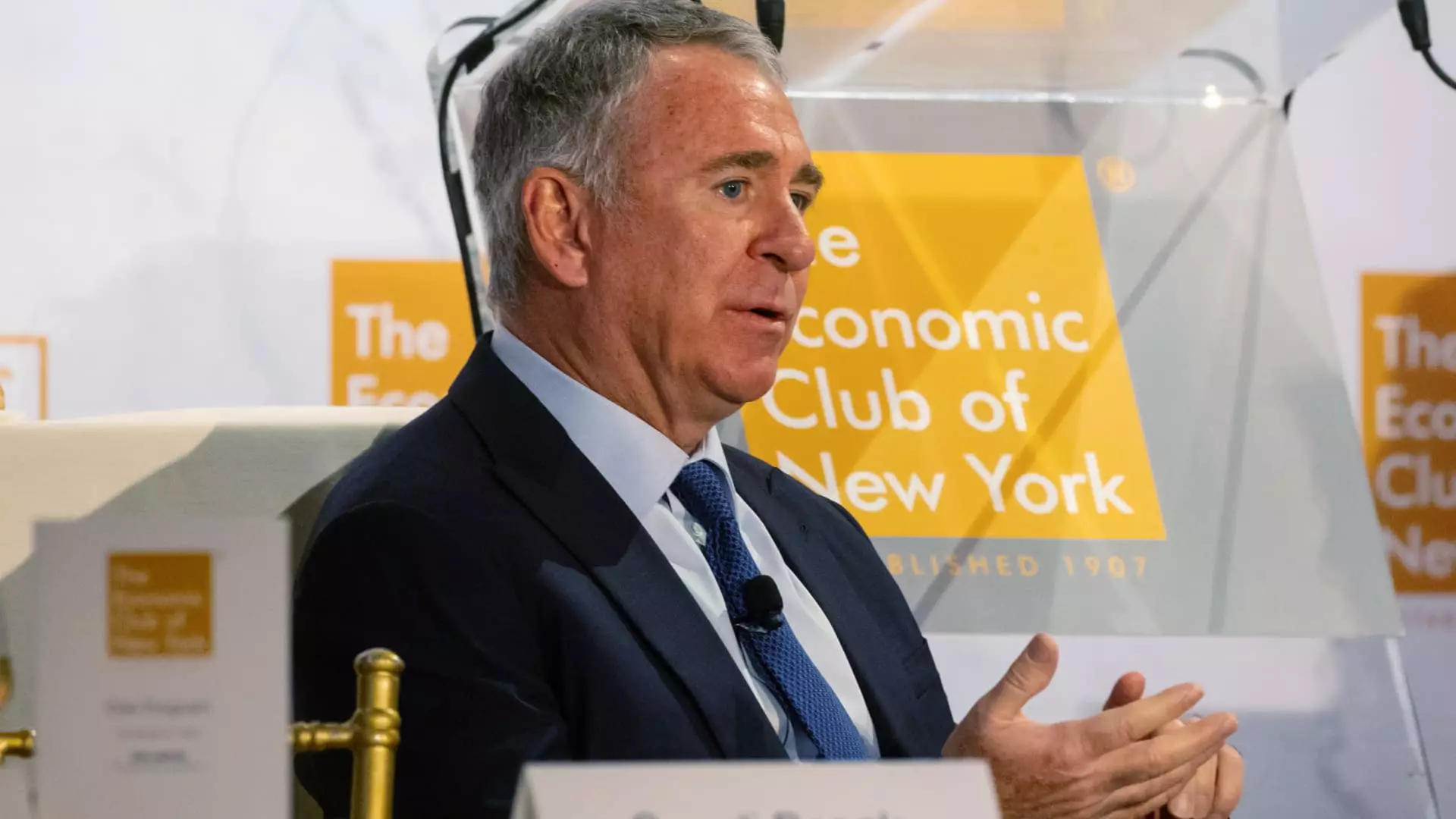In recent discussions surrounding economic policy, Citadel CEO Ken Griffin has voiced serious reservations about the protectionist measures proposed by President-elect Donald Trump. Griffin’s remarks illuminate fundamental concerns regarding the potential consequences of steep tariffs on American industries and the broader economy. He argues that the imposition of such tariffs could foster an environment ripe for crony capitalism, leading to detrimental effects rather than the intended benefits.
Protectionist measures often appeal to certain domestic companies looking for a temporary advantage by shielding themselves from foreign competition. However, Griffin emphasizes that this short-term gain comes at a significant long-term cost. As domestic firms operate in a less competitive landscape, they are likely to lose their innovative edge, leading to complacency and, ultimately, a decrease in their productivity and competitiveness. In a global economy, maintaining a vigorous competitive spirit is essential; otherwise, businesses risk becoming obsolete as consumer needs evolve.
Griffin’s warning against crony capitalism highlights a critical issue: the relationship between business leaders and government officials can become dangerously intertwined when tariffs and protectionist policies are introduced. Such relationships often lead to favoritism and regulatory advantages for certain companies, undermining market fairness and efficiency. With higher tariffs in place, special interest groups would likely swarm Washington, requesting increasingly protective policies that further distance inefficient businesses from genuine competition.
This situation creates a vicious cycle where the decline of competitiveness among domestic firms fuels a perpetual reliance on government support. Griffin states, “Those same companies that enjoy that momentary sugar rush of having their competitors removed from the battlefield soon become complacent.” This complacency cultivates a stagnation in innovation, leaving both consumers and the economy at large vulnerable to reinforcing cycles of inefficiency.
The Economic Ripple Effect
Proposed tariffs and their rippling effects on production costs warrant careful consideration as well, especially in the context of post-pandemic recovery. The implementation of a universal tariff, particularly one as high as 20 percent, alongside an even steeper 60 percent for imports from China, can significantly elevate the cost of goods for American consumers. This relaunch of tariffs may hinder the recovery from the inflation spikes caused by the pandemic, ultimately squeezing consumers further.
Moreover, such trade policies risk alienating international trade partners and could ignite retaliatory tariffs, further spiraling costs for American industries. As prices rise, the burden falls on the average citizen who may find their purchasing power diminished.
In a compelling juxtaposition to his comments on tariffs, Griffin indicated that Citadel Securities is not pursuing a public offering in the near future. This highlights a strategic choice to concentrate on growth within the private sector, avoiding the pitfalls and pressures that can accompany public scrutiny and obligations. Instead, Griffin emphasizes a forward-thinking approach that aligns with Citadel’s investment in future opportunities.
Drawing from Griffin’s insights, it becomes evident that understanding the long-term implications of economic policies is vital. While protecting domestic industries is important, the methods employed must encourage innovation and competition rather than foster complacency within a protective cocoon. As policymakers navigate this intricate landscape, the lessons from experienced voices like Griffin’s can serve as a crucial guide toward sustainable economic practices.

